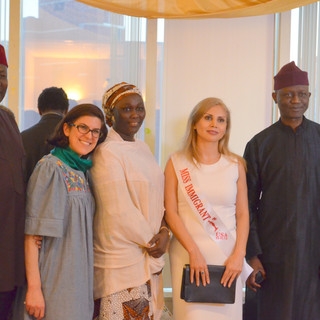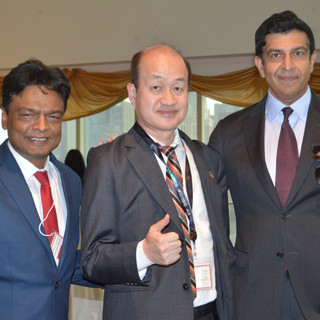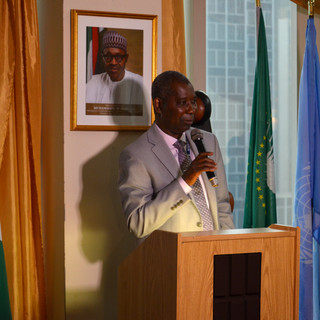Sustainable Development Goals Implementation in Lake Chad Basin Region: UN System and Non-State Acto
- Society & Diplomatic Review
- Mar 19, 2020
- 2 min read

Photo Credits: Society & Diplomatic Review
The Permanent Mission of Nigeria, in collaboration with the Permanent Missions of Cameroon, Niger and Chad Republics to the United Nations, the University of Oklahoma, Kaabah Foundation (Nigeria), Association la Plume pour la Culture et le Developpment (Chad) and Al-Najat Foundation (Kuwait), among others, organized the Third International Conference on the Lake Chad Basin Region on August 5-6, 2019, at the United Nations Headquarters.
The present humanitarian crisis in the Lake Chad region is one of the most challenging and complex in the world for implementing the Sustainable Development Goals United Nations Agenda 2030 and African Union’s Agenda 2063. It is not only the scale of the current humanitarian crisis that requires the Lake Chad region to be placed very high on the global agenda, but also the nature and dynamics the crisis places on the intersection of fragile ecosystems degradation, governance structures and resource stresses caused by climate change.
The theme of the two-day conference- Sustainable Development Goals (SDGs) Implementation in Lake Chad Basin Region (LCBR): UN System and Non-State Actors Exploring New Ways of Cooperation- focused on the following:
1) Strengthening the knowledge base for SDG implementation in the Lake Chad region, including successes, challenges and barriers;
2) Continue highlighting the interdependent relationship between and among climate action and related security risks, water, economy, education, and health and well-being in the Lake Chad region;
3) Facilitating multi-stakeholder engagement on SDGs implementation in the Lake Chad region between national governments, the private sector, the Lake Chad Basin Commission, Non-Governmental Organizations, Civil Society, academic impact institutions, among others;
4) Deployment of technological and business innovations (e.g. e-Learning, e-Health, satellite communications technology, atmospheric water generation, aquaponics) in the Lake Chad region;
5) Innovative resource mobilization (accessing international climate finance and global philanthropy resources for SDGs implementation in the Lake Chad region); and
6) Create networking opportunities for stakeholders to accelerate sustainable development goals in the Lake Chad region.
To deliver effective and sustainable responses to the climate crisis, there must be collaboration across sectors, establishing public-private partnerships across different institutions and at all administrative levels so the policy environment is consistent and supported by all (UN-Water).
For more information visit: https://uat-oweb.outreach.ou.edu/community-services/public-community-community/public-service-institute/conference/
Photo Credits: Society & Diplomatic Review




































































